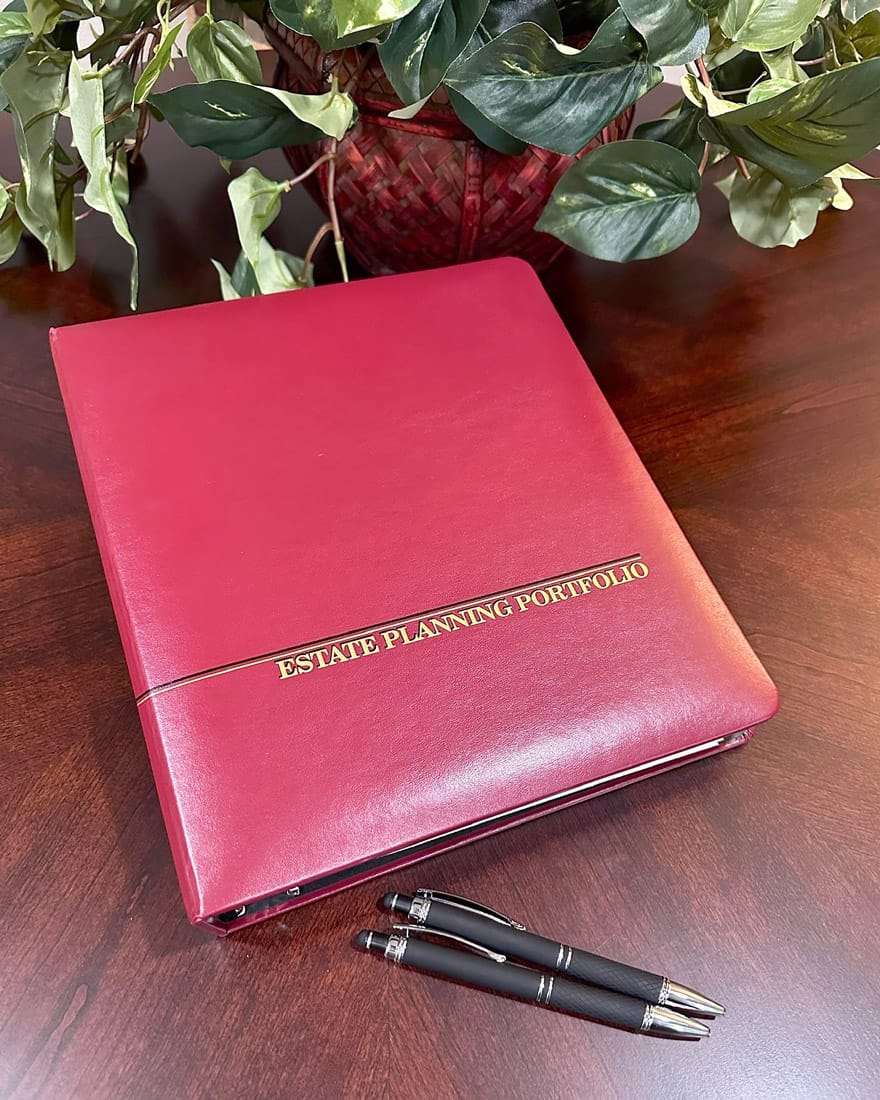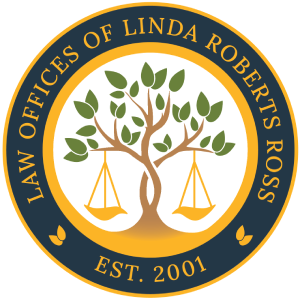Estate Planning
Give Your Family Clarity, Comfort, and Protection When They Need it Most.
The time to plan is before the crisis hits. People struggling with emotional distress due to the loss of a loved one, or a sudden, catastrophic injury or disability, often make the wrong choices.
A well-crafted Estate Plan, will protect you and your loved ones in the event of death or catastrophic disability. It will allow your designated agent to make critical and time sensitive decisions for you and your loved ones and save tens of thousands of dollars. In the absence of an estate plan drafted to your specifications, the court [the State] will likely make those decisions. Make sure you are the one making these very important choices, not the State.
While never pleasant to think about, we are all going to die. Therefore, the question is: When you pass away, will you have made the right decisions to take care of those you love when you’re gone?
The Law Office of Linda Roberts-Ross will help you prepare an Estate Plan that fits the needs and goals of you and your family and insures that you will determine who will raise your minor children, what will happen to your property, who will make life and death healthcare decisions for you, not the State.
A Comprehensive Estate Plan, including a Revocable Trust, is the most thoughtful gift one can give to their family. It is an act of loving protection for those you will leave behind; those who depend on you.
At The Law Offices of Linda Roberts-Ross, established in 2001 as a family-owned and operated law firm, we understand family. We put your needs above all else. You can trust our team to make sure that your estate plan is designed especially for you and your family and will be there for your family when you no longer can be.
- Trusts
- Wills
- Powers of Attorney
- Nominations of Guardians
- HIPPA Waivers

Frequently Asked Questions
The following FAQs address common concerns for residents of both Idaho and Washington. Some answers may vary slightly depending on the state, and personalized legal advice is recommended.
Yes. Even if you have a trust, a “pour-over” will is recommended to capture any assets not already transferred into your trust. However, this recommendation may be different if the Trustor (the person establishing the trust) ever has to utilize any Medi-Caid program for medical or long-term care expenses.
Your estate will be distributed according to your state’s intestate succession laws, which generally prioritize spouses, children, and then other family members. The court will also appoint a personal representative who will be responsible for administering your estate. If your estate value is less than $100,000 net value and with no real estate, your family may be able to utilize a “small estates exclusion” to avoid the probate process.
A will must go through the probate process in court, while a trust avoids it if properly funded. Trusts offer privacy, faster distribution, and better incapacity planning. Any estate worth more than $100,000 will benefit from a trust.
Idaho and Washington both allow handwritten (holographic) wills if they are entirely in your handwriting and signed. However, they may be more likely to be contested. Washington handwritten wills require the testator (person making the will) to sign and two competent witnesses must sign attesting that they saw the testator sign the will. However, for reliability, most people use typed wills with two witness signatures. Its also a good idea to have the will notarized, being sure to have your thumbprint recorded in the notary book.
A revocable trust can be changed or revoked during your lifetime. An irrevocable trust generally cannot be changed and is often used for asset protection or tax planning. The Trustor loses all control over their assets when they are placed in Irrevocable Trust, though they are used for the benefit of the Trustor.
sdfd
Probate is required unless all assets pass by beneficiary designation, joint ownership, or trust. A very simple probate may take 4–6 months and cost several thousands of dollars. More involved estates can be expected to take longer, sometimes even years. The costs of probating an estate where there is no trust, can cost many thousands of dollars, even tens of thousands of dollars, especially if there is litigation.
There are ways to avoid probate if you have specific “Pay on Death” beneficiaries listed on bank accounts and other accounts. However, doing so does not protect your estate and can leave the estate without any resources available to manage and maintain property, pay debts, or otherwise carry out your intentions. A trust is virtually always the most efficient, cost effective and best way to manage an estate valued at more than $100,000.
Yes. Estate plans aren’t just about death—they include powers of attorney and healthcare directives in case of incapacity. If you have young children, you absolutely need an estate plan to properly plan for and protect them should something happen to you.
The choice of a Trustee should be a very carefully considered decision. It must be someone you can absolutely trust with everything you have, your children, and your very life. Choose someone trustworthy, organized, and capable of handling legal and financial matters. Consider at least two alternates in case your first choice is unavailable.
Yes, unless it is held in a trust, or the property is titled with a spouse or another person as joint tenants with rights of survivorship. There are also documents called Transfer on Death Deeds, which transfer ownership automatically upon the death of the Testator. However, that option does not work well for most families and can be a controversial and contentious issue for most.
Yes. A trust or LLC can help preserve family property by preventing forced sales or division among heirs.
A new deed (usually a quitclaim or warranty deed) must be recorded with the county showing the trust as the new owner.
If held as “joint tenants with right of survivorship,” yes. If held as tenants in common, the deceased’s share goes through probate.
Yes, especially if you want to avoid probate, ensure continuity, or protect your privacy. If you have set up an LLC or other business entity to handle your real estate assets, then you need to make sure that your interest in that/those business(es) is held in the name of the Trust. We can assist you in making those types of changes.
Appoint a guardian in your trust and instruct that your trust is to manage their inheritance until such time as they reach the age to be mature enough to manage it on their own.
Yes, but it must be explicitly stated in your will or trust. Idaho nor Washington law requires you to leave anything to adult children. Your assets are yours, and yours alone, to do with as you please upon your death. No one has any right to tell you how to distribute your estate when you die.
You can name alternate beneficiaries or specify what happens to their share (e.g., per stirpes vs. per capita distribution).
Use a trust or specifically name them in your will. With a trust, your Successor Trustee can hold those funds for your childrens’ benefit and put those assets beyond the reach of the ex-spouse/other parent. Don’t rely on your current spouse’s estate plan.
A properly drafted trust can include spendthrift clauses and other protections to shield inherited assets from creditors and ex-spouses.
Yes. These override your will or trust and should be reviewed regularly, especially after life changes like divorce or death. Our office recommends that bank accounts be held in the name of your trust.
No. Idaho does not have a state estate or inheritance tax. Federal estate tax may still apply to very large estates.
Yes. There is a state inheritance tax in Washington for estates valued at amount in excess of the applicable exemption amount, which is dependent on the date of death. It is also changed from time to time.
Our office always recommends that life insurance name the trust as the primary beneficiary. Doing so provides your successor trustee with near immediate source of funds to manage the estate. In addition, naming your trust as the beneficiary can help control how the proceeds are used, especially for minors or spendthrift heirs.
Only if your estate exceeds the federal exemption limit (over $13 million in 2025, subject to change). Proper planning can reduce or eliminate tax exposure.
It allows someone you trust to handle your financial affairs if you become incapacitated. Every adult should have one.
It lets you specify your healthcare wishes and designate someone to make medical decisions if you are unable to communicate and/or have lost capacity.
The person or people you name in your Medical Power of Attorney. If you don’t have a healthcare power of attorney, states will generally follow the rules of intestate succession for the person who has priority, usually starting with your spouse, then adult children, parents, etc.
Yes. A HIPAA release allows your medical information to be shared with your named agents or family members.
Yes. You can do so, but we recommend giving your Health Care Agent authority to make decisions for you based on real-time medical information from your care providers and weigh that information against your stated wishes. Checking boxes on a form is not informed consent under any definition.
You need a durable financial power of attorney or a funded revocable living trust with a successor trustee named.
Review every 3–5 years or after major life events (birth, death, marriage, divorce, move, significant asset changes).
Yes, but laws vary by state. It’s best to review and update your documents with an attorney in your new state.
Trustees must act in the best interest of beneficiaries, manage assets prudently, cannot self-deal, follow trust terms, keep records, and provide reports.
Yes, but you may want to consider a local co-trustee or professional trustee if complexity or travel would be a concern.
Your documents should name alternates. If not, the court may appoint someone, which could delay or complicate administration.
Committed to Our Client’s Peace of Mind and Their Family’s Well-Being
Contact us today for a free consultation and let us help you secure your family’s future.
